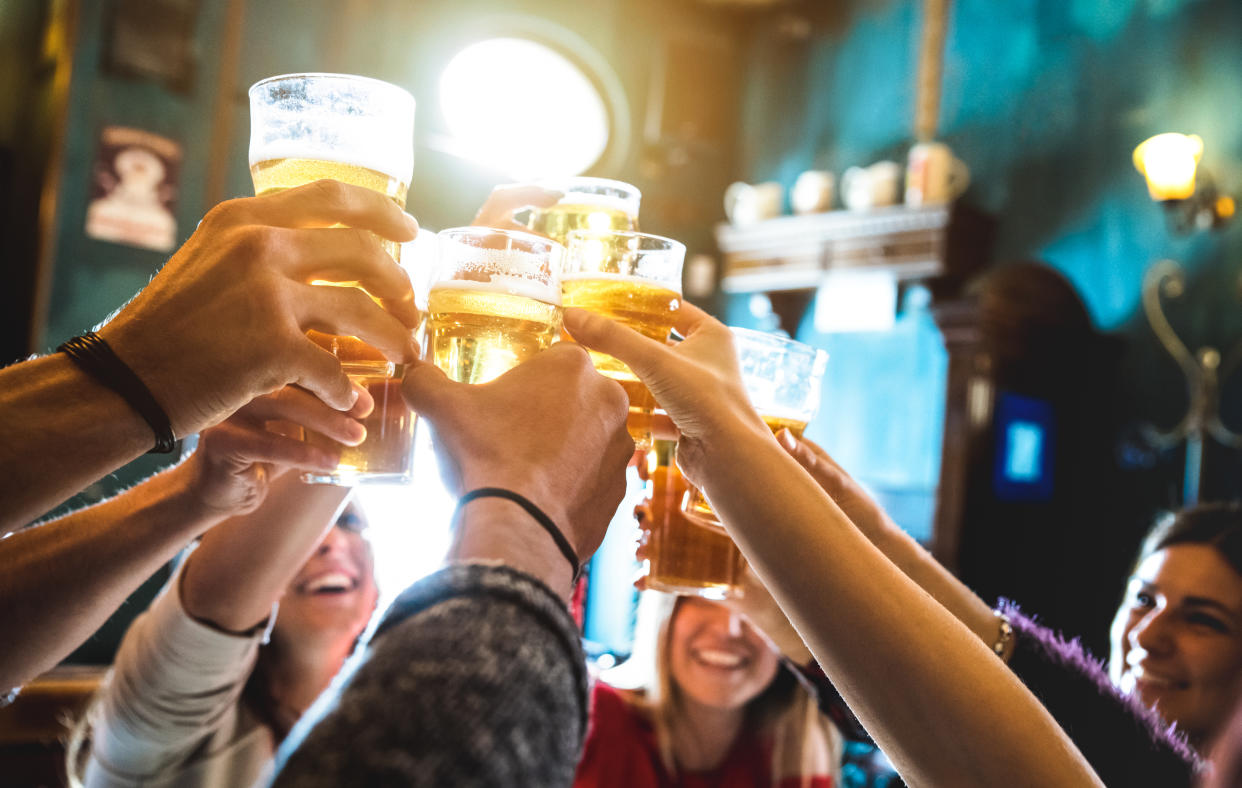Middle-aged men are binge-drinking at dangerously high levels

A new study from the Centers for Disease Control and Prevention (CDC) Thursday reveals that binge-drinking is becoming both more excessive and frequent — especially among middle-aged American men.
Published in the CDC’s Morbidity and Mortality Weekly Report, the study relied on data from what’s known as the Behavioral Risk Factor Surveillance System (BRFSS), a random digitized telephone survey of adults across the U.S. that’s conducted monthly. For this particular analysis, the researchers used BRFSS data from 2011 to 2017, measuring the average number of drinks consumed per sitting, the frequency of binge-drinking episodes, and the total overall number of binge drinks per year.
The results showed that the annual number of binge drinks Americans consume on average has “increased significantly” from 472 per year in 2011 to 529 per year in 2017. According to the data, the average American now binge drinks at least once a week, consuming seven alcoholic beverages per binge.
While the study shows an overall increase across demographics, some of the biggest increases occurred in middle-aged Americans, specifically aged 35-44, who went from 468 drinks per year in 2011 to 593 in 2017. Close behind were 45 to 64-year-olds, who increased from 428 drinks in 2011 to 527 drinks per year in 2017. Overall, men showed a sharper rise in drinking than women, with men going from 587 drinks a year to 666.
Researchers broke the data down by race as well, revealing the biggest increase in binge-drinking to be among American Indian and Alaska Natives, followed by whites. Asian/Pacific Islanders and Hispanics showed the lowest rates of increased binge-drinking overall. The study’s authors note that the data has limitations, including that it’s self-reported — therefore the numbers may either be under or overestimated.
Still, the findings are important, coming on the heels of a study out last week in which researchers analyzed the death certificates of Americans 16 and older and discovered more than 1 million alcohol-related deaths from 1999 to 2017. Jennifer Wider, MD, a woman’s health expert and author, says that those who choose to binge-drink regularly are engaging in dangerous behavior.
“Binge-drinking or the practice of drinking multiple drinks in a row for the sole purpose of getting drunk can have some serious health consequences,” Wider tells Yahoo Lifestyle. “To start with, the risk of injuries — which are unintentional — goes way up. Drunk driving, accidents, alcohol poisoning, nonconsensual sexual encounters, sexually transmitted diseases and alcohol dependence all rise when men or women partake in binge-drinking on a regular basis.”
But on top of short-term risks, consuming four or more drinks per day as a woman, or five or more as a man can also lead to the development of long-term health issues, such as high blood pressure, cancer, mental health issues and memory loss.
While the study may be alarming, Brad Lander, PhD, clinical director of addiction psychology at The Ohio State University Wexner Medical Center, says that quitting drinking entirely isn’t necessarily the only way to stay safe. “Although the health benefits of alcohol use are greatly exaggerated, a small or moderate amount of alcohol is not harmful,” Lander tells Yahoo Lifestyle. “The CDC defines this as up to one drink per day for women and two drinks per day for men.”
Wider agrees, adding that asking Americans who consume alcohol to stop entirely is an “unrealistic expectation.” Instead, she says those who do drink should use it as a reminder to make safety a priority. “The takeaway is that people know their limit and cut themselves off before they make poor decisions,” says Wider. “Alcohol in moderation can be safe, but it's pushing the limit when people can get into trouble.”
Read more from Yahoo Lifestyle:
Why women are more prone to serious complications from drinking alcohol
Birth month may influence the risk of death from heart disease, says study
This school science experiment will make you want to wash your hands: ‘So disgusting’
Follow us on Instagram, Facebook and Twitter for nonstop inspiration delivered fresh to your feed, every day.

